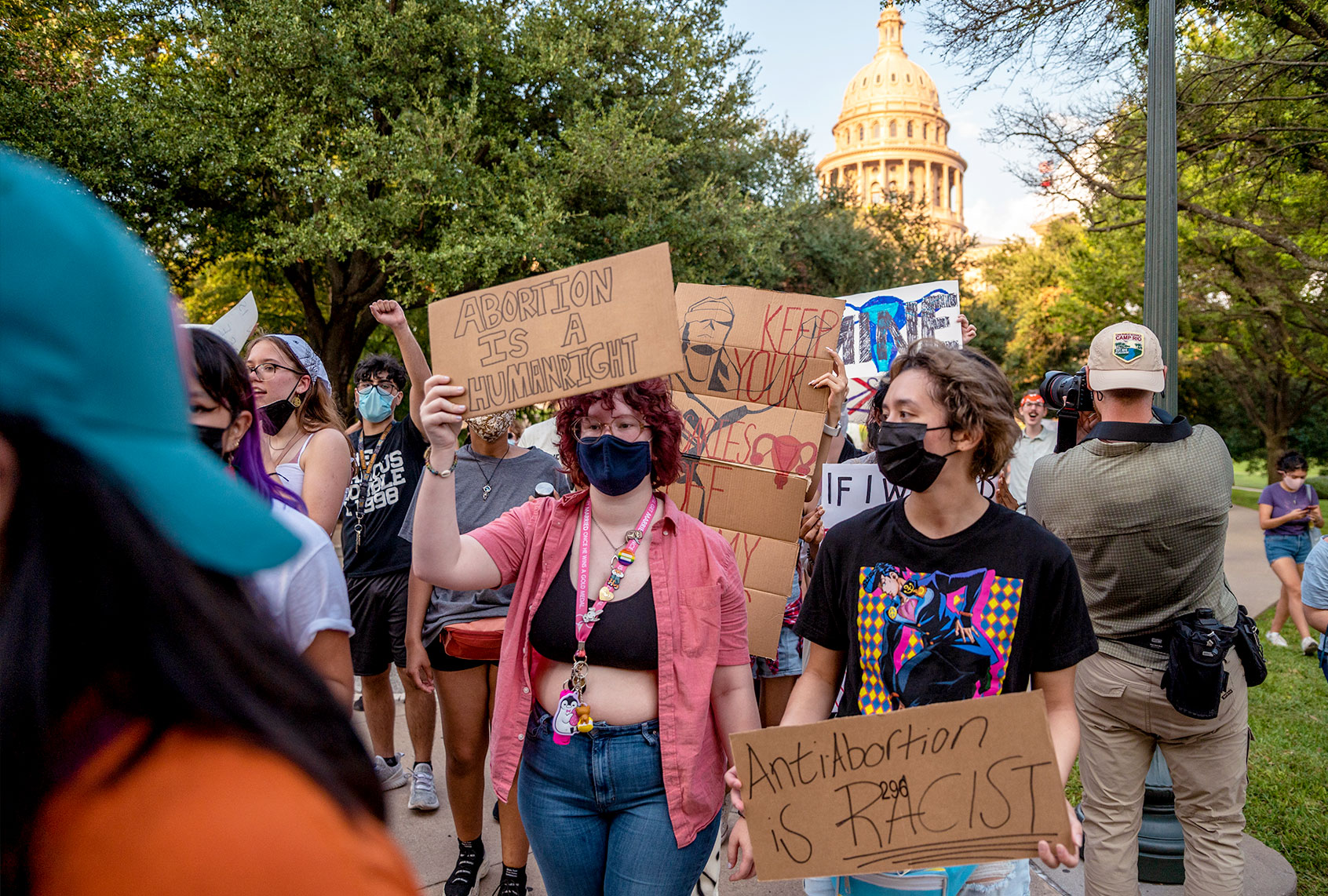Abortion saves lives. I have never felt the truth of this statement as deeply as when I looked into the eyes of a pregnant teenager who wanted but couldn’t get an abortion. Staying pregnant is just not an option for some. Safe abortion provides them a way into their futures. Forcing them to stay pregnant causes harms up to and including death.
Before abortion was made legal nationwide under Roe v. Wade, desperation led millions to seek unsafe abortions. The stories and statistics from that time are chilling. Coat hangers. Hospital wards full of young women in septic shock. Hundreds of deaths a year.
Since the US Supreme Court allowed Texas’ near-total abortion ban to go into law, other states will almost certainly follow suit, enacting total or near-total abortion bans. We should ask what the resulting death toll will be. While the gruesome consequences of illegal abortion before Roe might seem like the best place to look for answers, it’s not likely to be our future – even if more and more states ban abortion earlier and earlier in pregnancy.
Even when abortion is completely illegal, abortion is never gone. But abortion outside of clinics in our post-Roe era will be very different from abortion outside of clinics pre-Roe, because technology and advocacy have changed significantly in the past 50 years. We are likely to see organizations like Plan C organizing to help pregnant people self-manage their abortions safely with the medication misoprostol. Others will be able to travel to states where abortion is still accessible – but how many is very uncertain, as the landscape of abortion access will be radically altered. Some people may turn to other, less safe and less effective methods like herbs, physical methods like being hit in the abdomen, and other desperate measures.
In this changing landscape, there is really no way to estimate precisely how many people will die because of less-safe abortion if abortion is banned in the U.S. or in specific states.
But we know that banning abortion also increases pregnancy-related deaths by forcing people who want abortions to stay pregnant. Without access to abortion, more pregnant people will die simply because staying pregnant is riskier than having an abortion.
Abortion is incredibly safe, with 0.44 deaths per 100,000 procedures in the most recent statistics. Staying pregnant is about 40 times riskier, with 20.1 deaths per 100,000 live births in 2019. Cruelly, the mortality risk of carrying a pregnancy to term is more than three times as high for non-Hispanic Black people compared to non-Hispanic white people.
When you put people at higher risk of death, you should expect more people will die. So in a paper forthcoming in the journal Demography, I demonstrate that banning abortion in the US would increase the number of pregnancy-related deaths by 21% overall and 33% among non-Hispanic Black pregnant people. Any increases due to unsafe abortion would be in addition to these estimates.
These estimates assume that people who currently have abortions would carry their pregnancies to term or experience random miscarriage. This means that helping people self-manage their abortions safely would save lives. Helping people leave their states to get abortions would save lives. And not banning abortion would save lives.
Want more health and science stories in your inbox? Subscribe to Salon’s weekly newsletter The Vulgar Scientist.
These estimates are also for the whole US, but the states that are likely to totally or nearly totally ban abortion following the Texas example have higher than average maternal mortality rates. This means that the proportional increases in pregnancy-related death in the states that are most likely to ban abortion may be even greater.
U.S. maternal mortality rates are higher than any other rich nation and – while our peers have achieved steady declines in these rates in recent years – ours have been going up since the 1980s. Denying people wanted abortions means forcibly exposing them to these high, unequal, and increasing risks.
Of course, death is just the tip of the iceberg when it comes to the harms of denying people abortions. A group of especially rigorous studies has demonstrated that denying people abortions hurts their emotional, physical, social, and economic lives – often for years to come. Simply put, denying people abortions hurts them and their families.
When someone is pregnant and doesn’t want to be, forcing them to remain pregnant forces them into a future they do not want. Because pregnancy is especially dangerous in the United States, forcing someone to remain pregnant can even foreclose on their future entirely. “Abortion saves lives” is more than just a slogan; it is an empirical truth that everyone, no matter their position on the morality of abortion, needs to consider.

